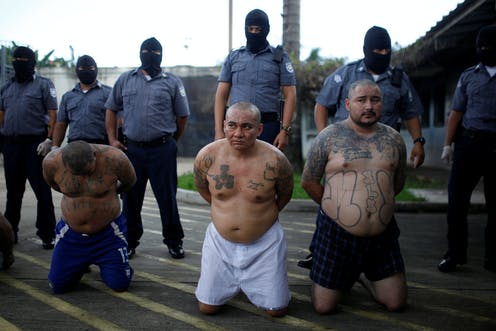El Salvador lethal force could trigger violent gang response

Human rights activists in El Salvador fear that the call for the use of “lethal force” by Salvadoran President Nayib Bukele against gangs will provoke a violent response from these gangs, which could lead to an increase in murders and extrajudicial executions by part of the security forces.
According to David Morales, a former human rights attorney, the measures adopted by Bukele in the face of the increase in murders “do not represent any new initiative in El Salvador” and, in the past, have led to an escalation of violence
“It is regrettable that President Bukele is repeating this scheme, which has failed so much and which has generated so much pain in the past and which has proved ineffective,” Morales told the Efe News Agency.
Faced with the increase in murders, which breaks with the trend registered during the current government, Bukele called on the security forces to use “lethal force” to defend themselves and protect citizens.
In addition, he ordered the prison security regime to intensify, so the cells of some 16,000 gang members were sealed with metal plates on Monday.
According to the Executive, these inmates transmitted the orders to increase the violent deaths from inside the prisons with encrypted signals and these are carried outside by released prisoners.
“We have had clear examples that these types of approaches and interventions are not effective, they have failed, they have not diminished violence”, but “they have led to an escalation of homicides, have generated extrajudicial executions that remain in impunity” he added.
Morales, director of Human Rights of the Central American organization Cristosal, pointed out that these measures also “have generated more violent responses from crime, including revenge strings” that have affected the families of police and soldiers.
Manuel Escalante, deputy director of the Institute of Human Rights of the Central American University (Idhuca), warned that the call to the use of “lethal force” will result in a “bloody backlash”
“It seems that the security forces are acting on the personal will of the president and not subject to the framework of the law,” Escalante explained to Efe, adding that Salvadoran legislation requires that the use of force “be proportional, necessary and be suitable”.
He noted that such use of force must also be subject to internal controls by security and external bodies, such as the Office of the Attorney General of the Republic (FGR), to determine whether administrative or criminal offenses are committed.
Meanwhile, the ex-attorney warned that “previous experiences have shown that the internal controls of the Police to prevent and investigate abuses are totally non-functional” and “have been neutralized for several years.”
He added that the Public Ministry “plays an extremely passive and tolerant role against human rights abuses and extrajudicial executions.”
According to investigations by the Office of the Human Rights Ombudsman, police officers “executed” at least 116 people between 2014 and 2018.
The deputy director of Idhuca also called on international organizations to monitor that the health crisis by COVID -19 does not lead to a “social political crisis” in which the Government intends to act “without any type of control”.
David Morales stressed that “international surveillance is very important” on the situation that the country is facing before “
He explained that this is due to “effects on democratic principles, such as the division of powers, arbitrary arrests by the dozens under the figure of compulsory quarantine.”
The director for the Americas of Human Rights Watch (HRW), José Miguel Vivanco, on Monday warned of the risk of turning the Central American country “into another Latin American dictatorship.”





